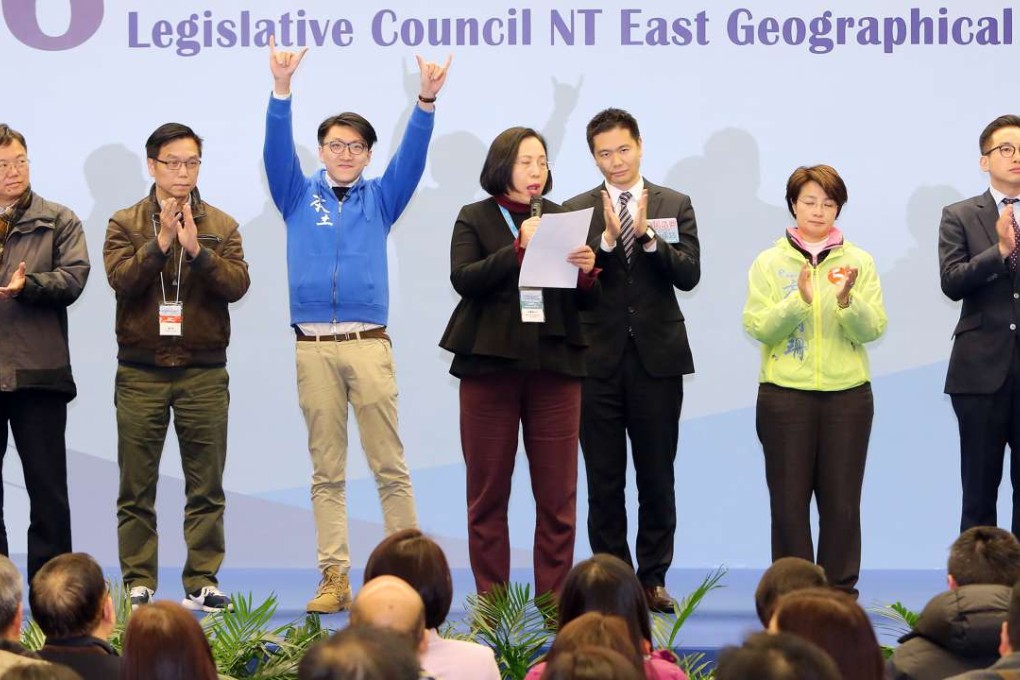Hong Kong’s pan-democrats must unite in battle for survival ahead of key legislative election
Albert Cheng says the rise of militant localist groups has eaten into the voter base for mainstream democratic parties, who must lose no time in working together to prepare for the upcoming polls

The New Territories East by-election has been branded a dress rehearsal for the Legislative Council poll on September 4. It is now clear that the activists behind the violent protests in Mong Kok are poised to make their way into the legislature.
It is now clear that the activists behind the violent protests in Mong Kok are poised to make their way into the legislature
Edward Leung Tin-kei, who was on bail in connection with alleged rioting, lost in the by-election but managed to garner more than 66,000 ballots, 15.4 per cent of the vote. This level of popularity can be translated into at least one Legco seat under the proportional representation system. Leung is the standard bearer of Hong Kong Indigenous, which denounces mainland visitors as intruding on Hong Kong’s way of life. It is one of the radical bodies to emerge from the 2014 Occupy Central campaign that endorse the use of force as a legitimate means against the unpopular government. They seek autonomy for Hong Kong beyond 2047, when “one country, two systems” is supposedly due for review, and insist there is no “bottom line” for their political struggle.
Apparently based on confidential government surveys, Executive Council member Cheung Chi-kong estimated that 5.5 per cent of Hong Kong people are sympathetic to their cause. The “militant localist” groups have obviously eaten into the pan-democrats’ traditional support base. November’s district council elections also pointed to this trend.
READ MORE: Hong Kong localist’s vote haul in by-election points to further splits in radical groups at Legco polls
The pan-democrats are in dire need of a major repositioning to retain their influence.
Today’s voters are discontented with the status quo. That includes the ageing leadership of the pro-democratic factions. It’s time for the old guard to make way for their second and third in line to take over the helm; its not a matter of political decency but survival.
The demand for change is loud and clear. The outcomes of the by-election have sounded the alarm bells not only for the government and its supporters, but, more importantly, for the pan-democrats. The Civic Party and Democratic Party should consider a merger to present themselves with new vigour to the middle class. The Labour Party, the Association for Democracy and People’s Livelihood, the Neighbourhood Workers Service Centre and other smaller groups should be welcomed on board.